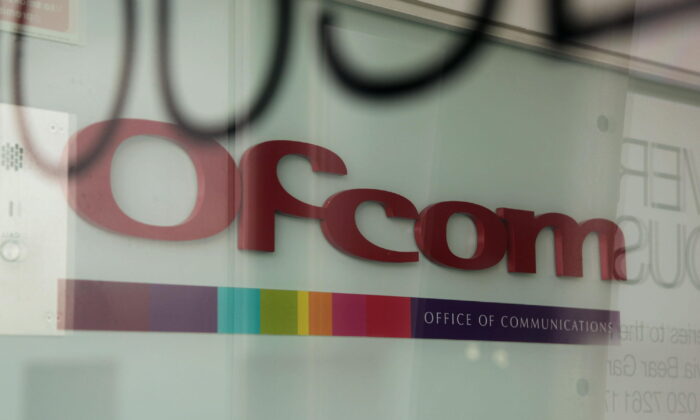Three Americans became infected with mycobacterium abscessus after receiving stem cell treatments in Mexico, according to the CDC.
Health experts with the U.S. Centers for Disease Control and Prevention (CDC) are warning travelers considering medical tourism abroad of three cases of infections that they say are linked to stem-cell treatments in Mexico.
In its Morbidity and Mortality Weekly Report published on May 9, the health agency described the infections of mycobacterium abscessus—a type of bacteria distantly related to the ones that cause tuberculosis and leprosy—as “difficult-to-treat” and “intrinsically drug-resistant.”
The health experts further noted that the infections—which can lead to symptoms including boils or pus-filled vesicles on the skin along with fever and muscle aches—are “rapidly growing.”
According to the CDC, three Americans became infected with mycobacterium abscessus, which has been known to contaminate medications and products, including medical devices, after receiving stem cell treatments in three cities across Baja California and Guadalajara, Mexico, in 2022 and 2023.
One of the individuals who became infected was a Colorado woman between 30 and 39 years old, the CDC said.
She received intrathecal donor embryonic stem cell injections in Baja California to treat multiple sclerosis in October 2022, and “subsequently experienced headaches and fevers, consistent with meningitis,” according to the agency.
The woman was later treated by two hospitals in Colorado for mycobacterium abscessus meningitis between November and December 2022, CDC officials said.
In the spring of 2023, two other patients were identified at a Colorado hospital as having acquired mycobacterium abscessus infections after receiving stem cell injections performed at different clinics in Baja California, according to the CDC.
One of those two patients is an Arizona man aged between 60 and 69 who developed an infection in his right elbow after having donor embryonic stem cell injections for psoriatic arthritis, the CDC said.
He was treated at a clinic in Mexico–which was not the same one in which the Colorado woman received treatment–in April 2022.
The second patient was identified as a Colorado man also aged between 60 to 69 years old.
That patient developed bilateral knee infections after receiving stem cell injections in both knees for osteoarthritis at a clinic in Guadalajara, Mexico, in October 2022.
Patients Developed Infections After Treatment, CDC Says
Despite the clinics being in separate locations miles apart, two of the patients shared bacteria with identical genetic material, the CDC said.
“Isolates from two patients were identified as M. abscessus [mycobacterium abscessus] subspecies massiliense of a single clone, distinct from known dominant circulating clones (DCCs), by whole genome sequencing,” the agency said.
Stem cells are essential for the growth and repair of the organs, bones, muscles, and more in the human body. Stem cell therapy uses those cells to treat or prevent various diseases or conditions by injecting them into the injured tissue, promoting regeneration, according to the Mayo Clinic.
Despite rising in popularity in recent years, the only stem cell product that has been approved for use in the United States by the U.S. Food and Drug Administration is hematopoietic (or blood) stem cell transplantation derived from umbilical cord blood, according to the agency.
 Stem cells come into play when we need to repair cells that are damaged due to various diseases and injuries. (File photo/Shutterstock)
Stem cells come into play when we need to repair cells that are damaged due to various diseases and injuries. (File photo/Shutterstock)Patents, Clinicians Must Remain Diligent
As a result, thousands of Americans travel abroad for stem cell treatments, along with other treatments, every year. The State Department estimates between 150,000 and 320,000 Americans seek treatment outside of the country every year.
Experts in mycobacterial diseases at National Jewish Health are now working with the CDC to investigate the recent mycobacterium abscessus infections.
In a press release, pulmonologist Charles Daley, a senior author of the report and head of the division of mycobacterial and respiratory infections at the National Jewish Health, said the hospital regularly sees patients from all over the country with mycobacterial diseases.
Experts noticed a trend of patients getting this particular infection–mycobacterium abscessus–after stem cell injections were performed outside the United States, he said.
In this particular instance, health officials notified the state health department and the CDC, according to Dr. Daley.
“We want to make sure clinicians are diligently looking out for this strain from the outbreak of Mycobacterium abscessus subspecies massiliense infections,” Dr. Daley said.
Minh-Vu H. Nguyen, an infectious diseases physician at National Jewish Health and lead author of the study, said health officials want the general public to be aware of the risks of unapproved stem cell injections.
“Also, clinicians seeing patients with infections in skin, other soft tissues or bone and joints should be aware of mycobacteria, specifically Mycobacterium abscessus, as a possible cause and notify their local health authorities if confirmed,” Dr. Nguyen said.
The Associated Press contributed to this report.














 English (US) ·
English (US) ·  Turkish (TR) ·
Turkish (TR) ·